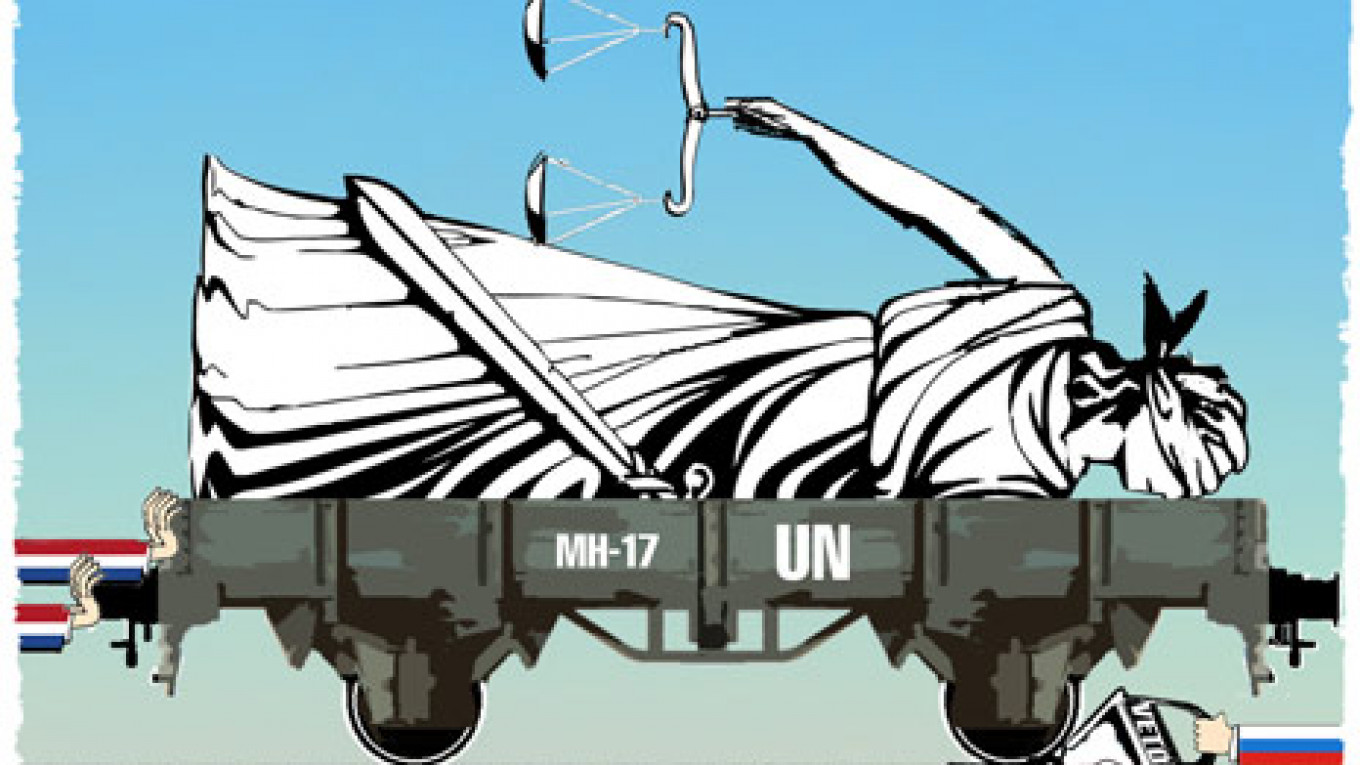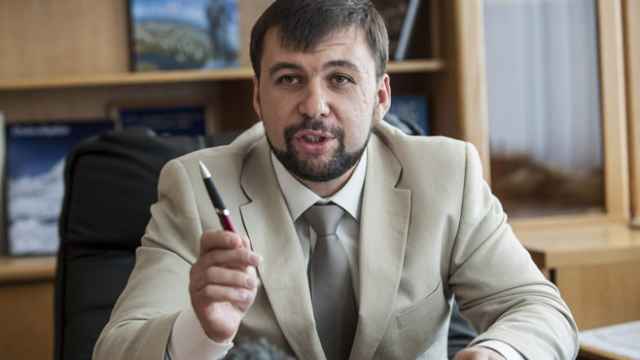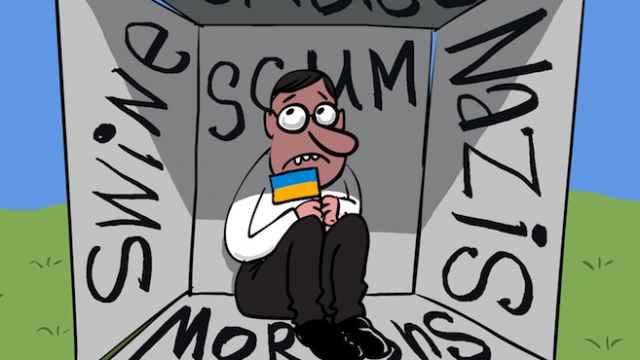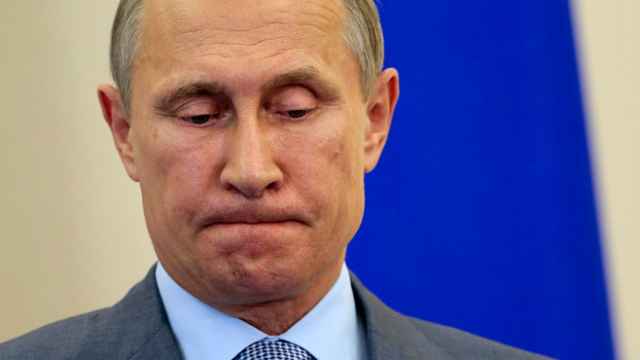Nearly a year ago, Malaysia Airlines flight MH17 from Amsterdam to Kuala Lumpur was shot down over the rebel-held territories of eastern Ukraine, killing all 298 on board — more than two-thirds of them Dutch citizens. And while the conclusions of official investigation into the tragedy won't be released until October, recent moves by Dutch officials for a UN-backed international tribunal has reignited international legal debate about justice for the victims.
Dutch prosecutors have reportedly narrowed their focus to the theory that MH17 was shot down by a Russian-made Buk missile fired from territory held by pro-Russian rebels, which suggests that those criminally liable may hail from Ukraine, Russia, or both.
While assessing responsibility and liability will be daunting, no country is better poised to utilize the entire variety of international legal instruments than the Netherlands. After all, Hugo Grotius, the "father of international law" was a Dutchman, while The Hague itself is synonymous with international justice for the myriad of international courts and tribunals seated there.
So it is definitely worth paying attention when Dutch officials claim that an ad hoc UN tribunal would be the "best option" in facilitating cooperation from all concerned countries.
To be sure, conventional legal options are fraught with difficulties. By virtue of territorial jurisdiction, the Ukrainian government could try accused individuals in their domestic courts — though those proceedings would be hindered by a perceived lack of impartiality.
Likewise, the Netherlands, Malaysia, Australia and others could claim jurisdiction to try the accused for the murder of their nationals in their own domestic courts based on the nationality principle — likely to be confounded by extradition troubles, as with the Ukrainian option.
Moreover, trial in domestic courts would be limited to domestic crimes such as murder or manslaughter, rather than larger-scale crimes of international law, such as war crimes or crimes against humanity.
To that end, an oft-touted option is the International Criminal Court (ICC) in The Hague — established specifically to try individuals charged with such heinous international offenses. Yet neither Russia nor Ukraine have ratified the Rome Statute that established the court, so neither are subject to its jurisdiction.
And by virtue of being one of the Permanent Five (P-5) members of the UN Security Council, Russia could wield its veto to stymie any referral to the ICC's prosecutor to investigate.
Both Ukraine and — more importantly — Russia are subject to the jurisdiction of the European Court of Human Rights (ECHR), where cases could be brought by aggrieved states or family members of victims.
Yet Russia's relations with the ECHR are already strained to the point of breaking. With some 20,000 petitions already pending against Russia, its compliance has been spotty at best, and it has recently threatened to abandon the court, which would deprive victims of Russian domestic human rights abuses their most vital avenue for redress.
So perhaps an ad hoc international tribunal based in the Netherlands would indeed be the best option — perhaps even able to overcome Russia's signaled hostility toward the idea.
While there is no standard of "stare decisis" (binding precedent) in international law — meaning each transgression must be adjudicated according to its own merits — it seems the Dutch are patterning their response after the case of Pan Am 103, which was blown out of the sky by a Libyan terrorist's bomb over Lockerbie, Scotland in 1988, en route from London to New York.
After extensive negotiations with Libyan leader Muammar Gaddafi, Libya agreed to extradite the two accused terrorists to an ad hoc tribunal established at an abandoned U.S. military base at Camp Zeist in the Netherlands.
There, in 2000 — in an unprecedented development in international law — special considerations were made for the seating of a Scottish court, enforcing Scots law, on the territory of the Netherlands for the purpose of trying two Libyans for 270 counts of murder.
The parallels between Pan Am 103 and MH17 are evident, but Putin's Russia is not Gaddafi's Libya. As a permanent member of the Security Council, Russia has far more diplomatic levers at its disposal to prevent extradition and stymie judicial action, while its ability to withstand and defy international sanctions has already been demonstrated.
What's more, extradition of Russian nationals is forbidden by the Russian Constitution and Criminal Code. Especially amid the current atmosphere of East-West hostilities, the potential for Russian acquiescence to and participation in an international tribunal that would serve as a galling indictment of the Putin government and its involvement in the bloody separatism in eastern Ukraine seems remote at best.
There is one final case worth considering that may avoid the thorny extradition problem. Just five months before Pan Am 103, and one month before the end of the Iran-Iraq War, in July 1988, Iran Air Flight 655 from Tehran to Dubai was mistakenly shot down by an American surface-to-air missile from the USS Vincennes in the Persian Gulf, killing all 290 aboard.
Here we have a case of a P-5 member negligently complicit in the downing of a civilian airliner over contentious territory during an international armed conflict.
Iran took the United States before the International Court of Justice (again, in The Hague) over the tragedy. As the judicial proceedings increasingly highlighted American culpability in the tragedy, in 1996 the United States reached a settlement with Iran — paying ex gratia $61.8 million to the families of the victims.
While expressing "deep regret" for the "terrible human tragedy," the United States never admitted legal liability for shooting down the plane, and no American serviceman was ever charged with a crime or served time.
As these cases show, while the number of legal venues and instruments have proliferated over the years, the struggle for international justice will be an uphill one.
And while no settlement can ever bring back the victims of MH17, the actions of Dutch investigators and prosecutors to ascertain individual, criminal liability and then prosecute on those grounds, will hopefully further the development of civil and criminal accountability within international law itself.
Mark Lawrence Schrad is assistant professor of political science at Villanova University and the author of ''Vodka Politics: Alcohol, Autocracy, and the Secret History of the Russian State,'' Oxford University Press, 2014.
A Message from The Moscow Times:
Dear readers,
We are facing unprecedented challenges. Russia's Prosecutor General's Office has designated The Moscow Times as an "undesirable" organization, criminalizing our work and putting our staff at risk of prosecution. This follows our earlier unjust labeling as a "foreign agent."
These actions are direct attempts to silence independent journalism in Russia. The authorities claim our work "discredits the decisions of the Russian leadership." We see things differently: we strive to provide accurate, unbiased reporting on Russia.
We, the journalists of The Moscow Times, refuse to be silenced. But to continue our work, we need your help.
Your support, no matter how small, makes a world of difference. If you can, please support us monthly starting from just $2. It's quick to set up, and every contribution makes a significant impact.
By supporting The Moscow Times, you're defending open, independent journalism in the face of repression. Thank you for standing with us.
Remind me later.






